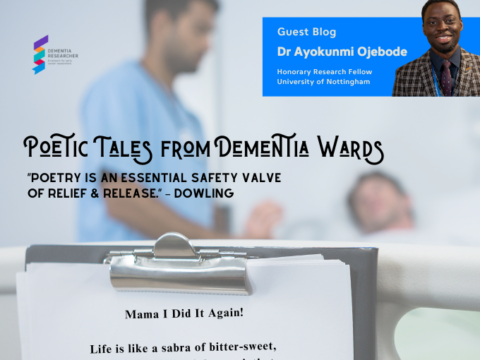In 2021, the Government published its R&D People and Culture Strategy, in which it acknowledged the threat that short, fixed-term contracts for people in research posed to their vision of cementing the UK’s ‘position as a global science superpower’. In the same year, Dr Yvonne Couch led an excellent mini-series on the Dementia Researcher podcast discussing The Perpetual Postdoc. Over several episodes the speakers highlighted the negative impact of short-term contracts and lack of job security on their lives and research. I won’t repeat all they covered here but I recommend you find these recordings and have a listen, if you haven’t already.
Three years and four Science Ministers later*, sadly, not much seems to have changed. So, I’m returning to the topic now to see if we can spark more discussion and find some solutions.
First, a little explainer on how universities are funded – bear with me here, it’s messy and I’ve had to piece this together from various sources as I couldn’t find a nice comprehensive guide to university finances**. This is also specific to the UK – I’d be interested to know how it differs in other countries but my little brain was a bit frazzled just trying to make sense of the UK system for now. So, about 80% of university funds are from public sources – this includes the Quality Related funding linked to a university’s performance in the Research Excellence Framework (REF), funding council grants for research, funding council grants for teaching and tuition fees. The remaining 20% of funding is from private sources, such as philanthropy, conference and event income, commercial or charity sponsored research etc. While teaching funding has changed quite a lot in the past decade, with funding council grants reducing leading to higher dependence on tuition fee income, research funding has remained relatively stable, both across the sector and within individual institutions. That is, apart from the odd year where a team lands a mega programme grant, we can predict fairly well how much research funding a given university will receive.
Why does this matter? Well, the usual response to questions about the lack of permanent positions for research staff is that it’s grant dependent and we don’t know which funding applications will be successful. But, while, yes, we don’t know which individual projects will be funded, we can be fairly sure that a university will receive X amount in overall research funding in the coming year. So, could this relative stability not allow universities to back at least half of their research staff in permanent positions? This is what happens in many other skilled private sector companies. For example, my brother is an engineer and works for a sustainable energy consultancy firm – the majority of staff members are employed on permanent contracts and deployed across projects as they come in and as fits the individual’s expertise. If a member of staff is ‘between projects’, they will be asked to support another project, further their training and work on building the client base. Consultancy companies can do this as a proportion of the income from each project will go into a central pot specifically to cover salaries for these short periods where individual staff members are not directly earning the company money. In a university, this could work by having a charge built into all research grants, specifically for bridging researchers between projects. Afterall, research grants already have inbuilt charges to cover the salaries of professional services staff (this comes under ‘overheads’ when you’re costing a funding application in Worktribe) – so adding a small charge to cover short periods of researchers’ time might not cause too much disruption to our current system.
A more radical idea though is to change the proportions of direct and indirect public research funding. The government allocates a certain amount of public funds to research – some of this goes directly to universities (this is the Quality Related funding), the rest goes to the NIHR and UKRI research councils, which allocate the funds in research grants. At the moment, research staff salaries are mostly covered by these public research council grants – but we could cut out the middle man here by government increasing the QR funding and decreasing the amount that goes to research councils. A proportion of the direct funding would be ring-fenced for researcher salaries on the condition that these are not then costed into research grants. This probably wouldn’t cover all research staff, so we’d need to consider how permanent contracts would be assigned – perhaps having criteria relating to number of years research experience. And, like in consultancy firms, applying for research grants would need to be a necessary part of a researcher’s role (although it usually is already…).
I know there are numerous flaws in both these suggestions but I hope they have got you thinking. The current system needs to change and that change needs to be informed by the people most affected – the research staff. Since the 2021 People and Culture Strategy, research councils and individual university management teams have been discussing so-called academic precarity, but there hasn’t been much engagement with researchers, that I can see, and not much has changed. So I would urge you to ask your universities what they are considering to improve researchers’ job security, invite them to join you in proposing solutions and take these to the wider research community. Surely we can come up with something better than what we’ve got at the moment – after all, we’re institutions of the most highly educated people around.
*Not counting the new Labour minister – at time of recording, he’s only a few days into the job!
**I wonder why!

Dr Lis Grey
Author
Dr Lis Grey is an NIHR / Alzheimer’s Society Dem Comm Research Fellow at University of Bristol and NIHR ARC West. Her interest lie in understanding how people with neurodegenerative disorders experience health and care services, and developing ways to improve services and support people to live well with these conditions. Lis is also passionate about working to improve research culture, and away from her work, a passionate gardner overly-ambitious baker.

 Print This Post
Print This Post






This really hits close to home for me right now, but I wanted to mention that I did previously have a permanent postdoc job! I was assigned to two senior researchers to write their grants, analyse their data and support write-ups. I had one day a week for my own projects and ideas, and then when I got my own grant the money for my salary went to pay someone else to free me up to do my project. When I left that job after 4 years (yeah, I left a permanent job, sounds mad but it was the right decision at the time) the Dept actually took that opportunity to convert it back into a fixed term contract. Why? Because they realised that the role was a development opportunity more suited to an ECR (which I was when I took it). That naturally people would move on to another role after that sort of length of time. I think what it would be nice to see is less in the way of 1 or 2 year contracts. 3 or 4 years is a decent length of time to plan!
All that being said, it’s ironic that now I’ve come to the end of another 4 year contract I am sitting here being sad about not being made permanent in this particular role! So longer contracts aren’t everything, and being later in career, it is harder for me to find new work because I cost more in grants. The Perpetual Postdoc cycle continues…